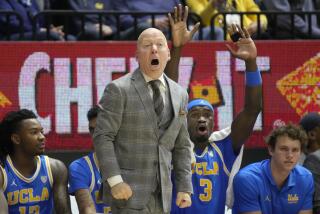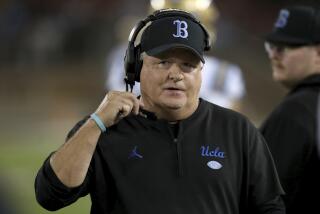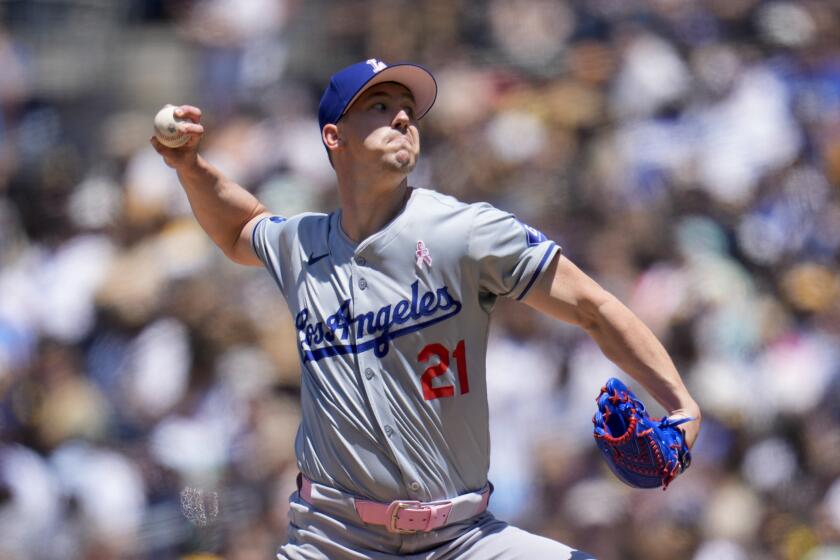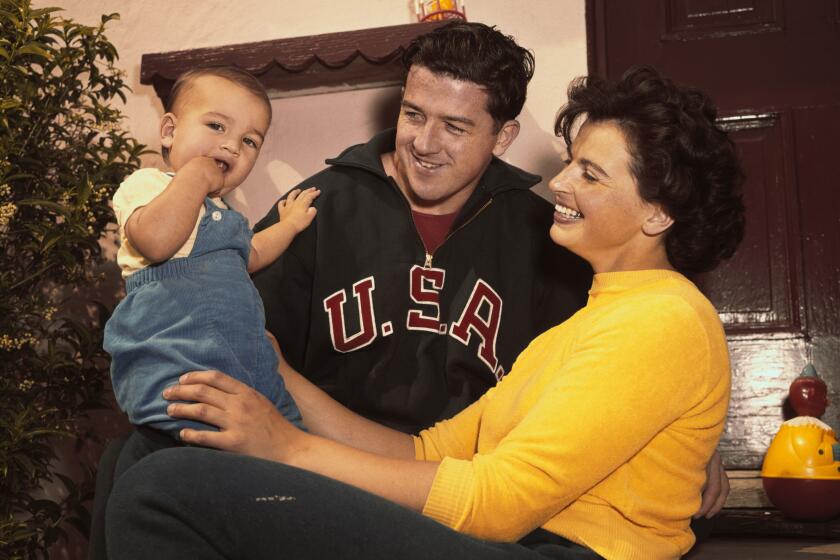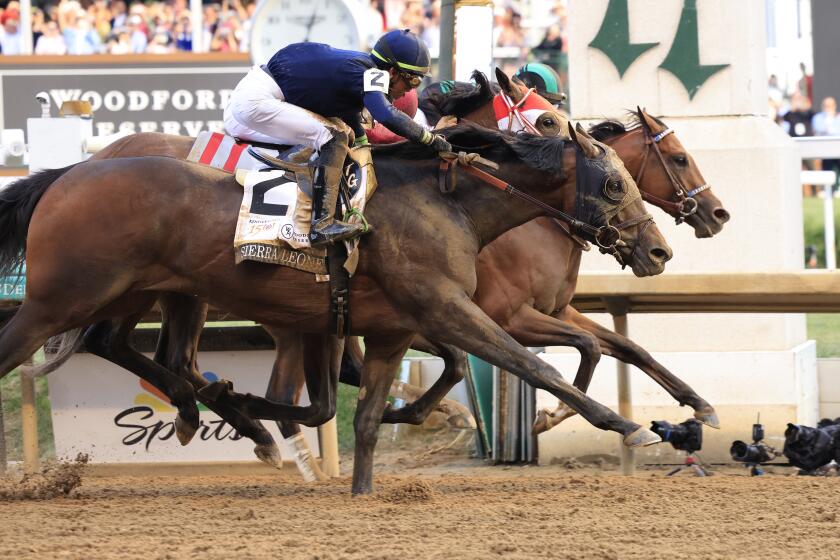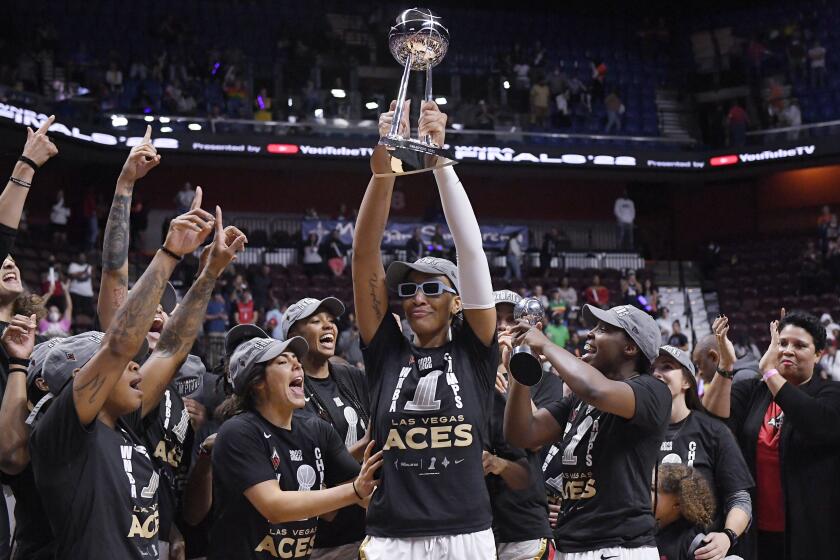UCLA’s conduct code gives wide latitude to dean who will decide basketball players’ punishment
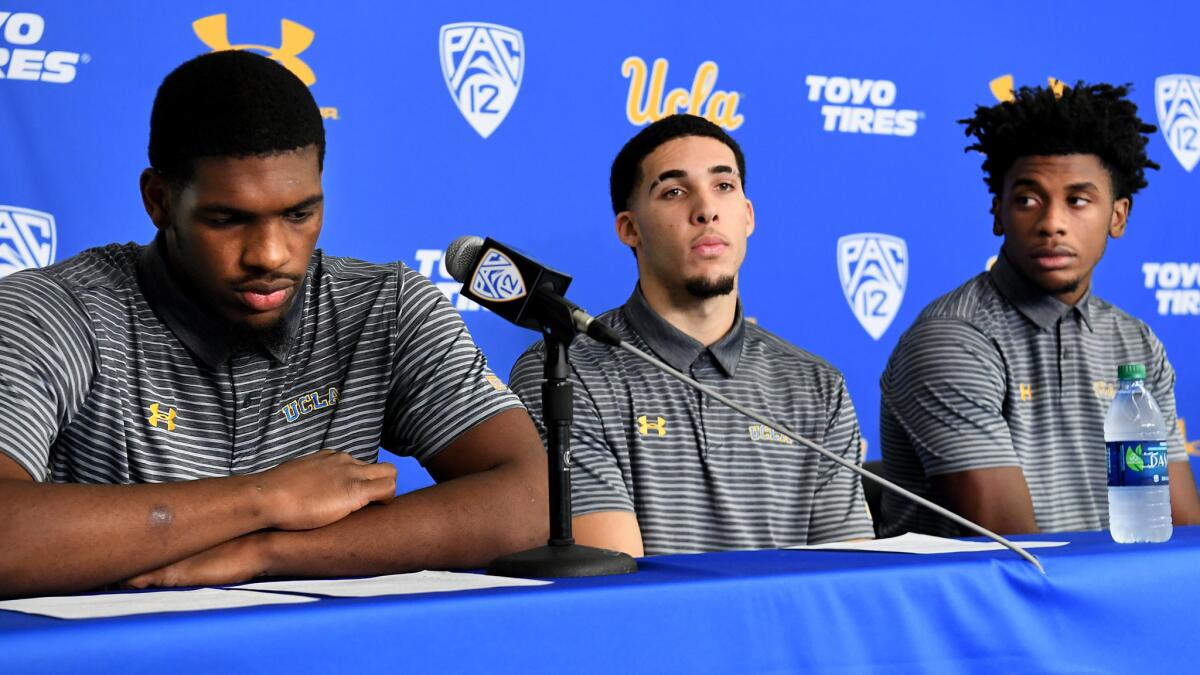
When UCLA athletic director Dan Guerrero and coach Steve Alford read prepared statements to a room full of television cameras and journalists Wednesday, they offered few specifics about punishment for three basketball players whose shoplifting created an international incident.
The players — freshmen LiAngelo Ball, Jalen Hill and Cody Riley — are suspended indefinitely from basketball-related activities as the school reviews their theft of items from three luxury stores last week in Hangzhou, China.
While Guerrero and Alford remained tight-lipped about the disciplinary process, the answer lies within the 38 pages of the school’s student conduct code.
“When faced with adversity,” the introduction says, “Bruins engage in thoughtful reflection and exhibit superior ethical decision-making skills.”
The document outlines a straightforward procedure that could reach a quick conclusion and transform the indefinite suspensions into a more concrete penalty.
B. David Ridpath, a former college administrator who is a professor of sports administration at Ohio University, called UCLA’s process “pretty standard.”
“The caveat is I never had an athlete involved in a student code issue where lawyers, the athletic department, trustees and boosters didn’t try to get involved and throw their weight around,” Ridpath said. “It would be better for UCLA to keep this process independent and like it would be for any student.”
The code gives UCLA wide-ranging jurisdiction over matters involving students “in connection with official University functions whether on or off University property.” The basketball team’s goodwill trip to China to play Georgia Tech appears to qualify.
To start the process, a written complaint is filed with the Office of Student Conduct. A separate process is used for sexual misconduct accusations. Following the complaint, Dean of Students Maria Blandizzi can conduct additional investigations.
The student is notified of the accusation, then has five days to schedule an initial meeting with the dean. The meeting is a key point. If the student admits guilt, as the three players did at Wednesday’s news conference, the dean will determine the punishment.
The timeline becomes more complicated if the student doesn’t admit guilt, but the dean believes there’s sufficient evidence. The matter is then referred to the student conduct committee for a hearing.
A UCLA spokesman referred questions about the policy to the document and couldn’t answer how many student conduct issues the school reviewed in the last year.
Section 102.04(a) of the code prohibits theft, including at school functions or students knowingly possessing stolen property. The handbook distributed to UCLA athletes last year also lists theft as a violation of the athletic department’s code of conduct. Neither document suggests a punishment — or the process for picking up the pieces after an international incident.
Further complicating matters is uncertainty surrounding what items the players stole and how much the merchandise is worth.
The code’s 2 1/2 pages of potential punishments range from giving students a warning to dismissing them from school. The dean has wide latitude in the decision.
“When it is determined that a Student’s behavior is in violation of University policy(s), the Dean will consider the context and seriousness of the violation in determining the appropriate sanction(s),” the document says.
One lawyer who has represented clients in UCLA’s disciplinary process believes the actual theft will be less significant in determining the punishment than the international embarrassment the situation caused the school.
For the time being, the three players aren’t allowed to practice, attend games or travel with the team. They remain enrolled in school.
“How schools respond to charges and convictions tends to depend on the profile of the player, his or her role in the program and the strength of the program,” said Alicia Jessop, a Pepperdine law professor. “One factor this case has that most don’t, though, is the widespread global attention. The public attention may cause UCLA to come down harsher on the men than it would have had they been accused of stealing in the United States.”
Twitter: @nathanfenno
More to Read
Get our high school sports newsletter
Prep Rally is devoted to the SoCal high school sports experience, bringing you scores, stories and a behind-the-scenes look at what makes prep sports so popular.
You may occasionally receive promotional content from the Los Angeles Times.

